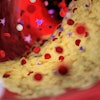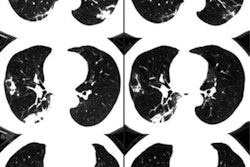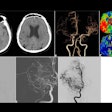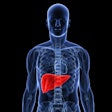Dear CT Insider,
A growing body of evidence suggests that CT coronary artery calcium (CAC) scoring may serve as a viable alternative to traditional risk factors in assessing cardiovascular disease.
Adding to this discussion, a new investigation into the CT CAC data of more than 60,000 individuals identified an association between their CT CAC scores and risk of death from various causes, including cardiovascular diseases and cancer. The implications of the study's findings lie at the heart of this edition's Insider Exclusive.
Updates on the novel coronavirus disease (COVID-19) have dominated the healthcare news circuit since early reports of the outbreak emerged in January this year, and CT has been a central figure all throughout.
Indeed, initial studies have shown CT to be vital for the early diagnosis of COVID-19 and in tracing disease progression. Researchers from the U.S. and China laid out several of the most notable CT findings that appear in individuals with COVID-19 as a reference for radiologists tasked with detecting the disease. And a separate group showed how CT and x-ray helped confirm the first case of COVID-19 in the U.S.
Recent research has also revealed the capacity of CT to uncover COVID-19 in cases in which initial DNA tests are negative. This finding spurred the Chinese National Health Commission to make clinical diagnosis through CT an official method for confirming the disease in Wuhan -- the presumed source of the outbreak -- and surrounding towns in Hubei province.
Already surpassing 75,000 confirmed cases in China alone, reports of the novel coronavirus have begun to emerge all across the globe -- from South Korea to Italy and Austria, and, most recently, in Brazil. Concerns over this rapid spread motivated radiologists from California and China to discuss various preemptive measures radiology departments could take to limit transmission of the disease.
Though somewhat overshadowed by coverage of the coronavirus, research on CT lung cancer screening certainly has made its mark recently as well. The team behind the Dutch-Belgian Randomized Lung Cancer Screening (NELSON) trial finally published its full findings in the New England Journal of Medicine. Researchers from North Carolina also demonstrated the viability of a mobile CT lung screening unit, which they used to deliver screening services to underserved and uninsured populations.
Other hot topics in the CT Community include dramatic dips in Medicare reimbursement for CT and MRI payments at private practices and the value of imaging in diagnosing electronic cigarette (e-cigarette), or vaping, product use-associated lung injury (EVALI). Head over to AuntMinnie.com to learn more.




















